Chris O'Dowd & Wayne Blair On 'The Sapphires'
Irish actor Chris O'Dowd, best known for his roles in Bridesmaids and Friends With Kids (as well as a recent guest spot on HBO's Girls), stars in director Wayne Blair's new film, The Sapphires, which received glowing reviews at the 65th Annual Cannes Film Festival earlier this year. Often described as the "Aboriginal Dreamgirls," and produced by Oscars heavyweight The Weinstein Co., The Sapphires follows four young, talented Australian Aboriginal girls who form a singing group in 1968 and fly to Vietnam, where they entertain U.S. troops. Combining the fun and spontaneity of soul music with the harsh realities of war, racism and economic struggles, The Sapphires brings up many issues worth discussing — and more than a few to laugh about.
Though O'Dowd had limited singing experience for this musical role, and offscreen capers with his female co-stars, including Deborah Mailman, Jessica Mauboy, Shari Sebbens and Miranda Tapsell, who are virtually unknown in the U.S. Once The Sapphires hits theaters in August, all that may change.
BLAIR: We have a laugh about this, but we won't tell you that story. But in all honesty, yeah, the character's originally English in the script, so I think we went after a couple of Englishmen and one Australian, as well. O’DOWD: They asked like 11 people [laughs]. BLAIR: Yeah, but, actors being actors they held on to it for a while because they could see a unique story in a great world. But, for whatever reason, we couldn't wait any longer, so I went to L.A., and I think Bridesmaids came out that first weekend. I met with Chris' agent. We had a number of people and I told her about the character in the story, face to face, and she mentioned Chris. I was like who's Chris O'Dowd? We looked at the Bridesmaids trailer and he was on there for about ten to 15 seconds, cause it concentrated on the girls. Then I sort of went that afternoon and I rang the producers and said, 'You know, we've got to target this guy now, he's just perfect. I think the Irish, his Irish sensibility, will be even better for this script. They're like, 'Are you sure? Are you sure?'' But I was pretty certain. I was very certain, actually.
BLAIR: And then we spoke with Chris on the phone, and he was quite polite but very smart. Actually, I YouTube'd him, and [to O’Dowd] I haven't told you this, and he's always having a [cigarette] in his mouth, and he's like drinking and he's like, 'Hey man,' he's having a joke, and I thought, 'Oh, we'll have a little jokey conversation.' So I bought some Irish whiskey for this phone meeting. I thought I'll buy some, I'll have a couple just to take the edge off. Then when I talked to him for the first five seconds, it was like, 'Hey man how are you, how's things?' I thought. he'd be joking with me. No, he was straight down the line, wanted to talk about the story from the get-go. So for the next 15 minutes we just talked story and I was like, 'F--k, Wayne, get your shit together, you know.' So then we massaged the script, and it took two or three days. And I think Chris could see that we meant business, and then [to O’Dowd] I think it happened quite later that you said yes. So, it was a bit of a process, but it just happened very quickly, I have to admit. Yeah, once I went to L.A., but anyway, you probably have your own take on it.
O’DOWD: It came at a really great time. Bridesmaids came out like a week or two before, so there was a lot of stuff kicking around. But it was more often than not, poor versions of Bridesmaids, you know, same kind of ideas but not with the same beauty of craft that the girls had, so I was very conscious that I needed to go and probably just do something very, very different. Although I got kind of stuck in a rut, and an aboriginal musical kind of filled that gap very, very well. I talked to Wayne, and I did have some kind of thoughts on the script and stuff, but I loved the world and I kind of thought the journey was something that I hadn't seen before. After I spoke to Wayne for a couple minutes, I thought, 'Ok, this is going to work out fine. He's a bright guy and I feel like we can get this to a place where it's going to be something very special.'
O’DOWD: Very, very scant would be one way of describing it, I suppose. I came from a musical home where there's always a guitar and a couple of instruments kicking around, and my uncle was a musician, so it was always a late night thing. I love the music of the film and the story, so I I learned how to play the piano a bit for the film and things like that. We were joking about it earlier on — the great thing about soul music, and I kind of talk about it a little bit in the film, it's not necessarily about being perfect. It's about what's behind it. And I felt like I could at least sell it.
BLAIR: It was a stage musical back in Australia, and I was an actor in that show written by Tony Briggs solely, and it was his mum's story. Basically, I was cast as an actor and Tony was a very good friend of mine at that time, but then the musical, the stage play, became a big success. And then he was inundated with a number of producers from around the world, and Australia wanting to take it to film. At that time, we were in cohorts, Tony and I, and I had something else in the build to be honest, but he was really on the path of The Sapphires, and he asked me to do it and I said, 'Yeah, I'd do it' – not knowing the ramifications. And then when the film got heat, and I said, yes, we just worked as a little team. So basically the genesis came in about 2004. So for the last nine years, we've just been working very closely together, you know. I just said this story just before, that when Tony was talking to his mum, I think over a little dinner, talking about bills and just talking about life, and she was saying, 'Tony we got to pay this bill, we got to pay this bill. This reminds me of the time me and the girls went to Vietnam and sung for the American Troops back in 1968.' So it's like, 'Mum, can you stop there? What was that little bit about going and singing to the soldiers?' So it started as an anecdote, and then he just took advantage of the idea saying, 'Mum let's make a film together,' and she's like, 'Shut up, just pay the bills.' So it started up a little anecdote, nine years ago, and now here we are again.
O’DOWD: A little bit. It was an education for sure, but I kind of know a little bit. I remember having the thought process when we were going into it, like, do I go and educate myself in all matters aboriginal before I get over there? Or, because my character's kind of ignorant about it, I kind of felt I should sort of be on par with him, so I kind of went into it and learnt as we went. But it's an incredible tale, so it's a little dichotomy where I feel like as an Irishman I can understand coming from a nation of suppressed people, but I definitely still have a lot of white man's burden about it as well. It’s kind of tricky, but I think that that's what we all deserve.
BLAIR: That came from Tony, because the Briggs family in Melbourne was such a big family back in those days, and Pastor Doug Nichols was one of Tony's uncles, who was one of the first aboriginal pastors in Australia. So when black people say they were very good friends with Arthur Ashe the tennis player at the time, he would invite them over to his house, because black people just wanted to touch base with other black people in Australia and make another community. So he would be friends with Arthur Ashe, the Jackson Five would be over at their place a couple of times, they had a barbeque with the Jackson Five there and Tony had a fight with Michael over the swing. His mum tells it better, but Tony hit him or slapped him or something, and you know how three-year old kids run away crying, but I think Michael ended up getting the swing. So yeah, he was around that world as he was growing up, and so was his family. So he wanted that in the world, ‘cause at that time a lot of the black power from Australia, that would get the blueprint off the Americans and what was happening in America. So our civil rights, when we're fighting for the basic human needs or basic land rights, we got a lot of that stuff from America. So when you see our protests, there's a lot of black power, there's a lot of Afros, and there's the black hand salute. Tony grew up with that, and that's why it's in the story basically.
BLAIR: It's funny. I did this short film called the John Johns, and I remember being in Berlin, and it was in the kinderfilm section, so with young people, and we did press interviews with young people, like 15-, 16-year-olds, and the questions they were asking me about aboriginal people were so much more insightful, so much more detailed and highbrow than questions I get asked by adult journalists in Australia working for major newspapers. So it gives you a little indication. It's hard, but the success of our short films, the success of films like Brand New Day, Samson and Delilah, Stone Brothers, Radiance, the list goes on and on. It's sort of like people cannot choose but to listen.
O’DOWD: Those bitches is crazy. I find it very heartwarming because I kind of grew up in a huddle of women. Three sisters and my mum, so it felt actually very easy. It felt comfortable. From the off, they were so open and so fun. What was really nice about it as well is that the two of the girls hadn't done very much acting before, and it kind of reminded me of my first couple of jobs where there's no agenda. It's let's just go and make the most fun we can have and the girls are a lot of fun, and they're all very individual and very interesting and together they're just like a cackle of geese and I'm the hairy goat herder. So it was basically a lot of farming going on, but yeah it was one of the most fun experiences I've ever had. It was very, very easy and really exciting.
O’DOWD: I just remember we were staying at a nice hotel and when Miranda walked in, it was like we had walked into Buckingham Palace. She just couldn't believe it. I find all of that really, really exciting, like watching through another person's eyes. Very kind of refreshing. Us being in Saigon and trying to avoid getting knocked over by motor bikes was crazy. You have all that, and I feel like the senior member of the group at times, and then they go off and do their song. That's the film, I'm just kind of doing jokes in between; they're incredible.
RELATED ARTICLES
Get the most-revealing celebrity conversations with the uInterview podcast!



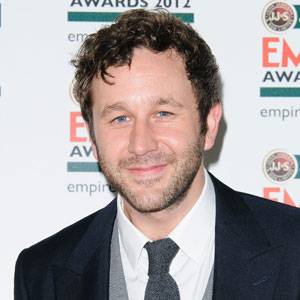
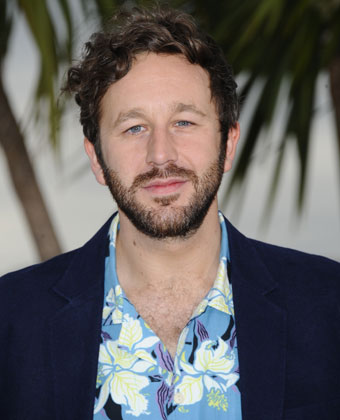
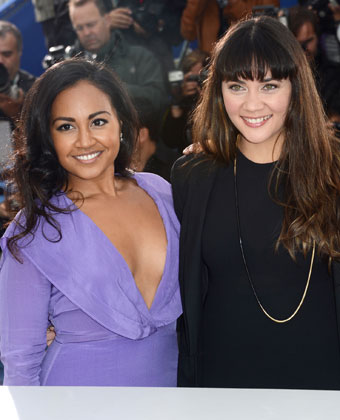
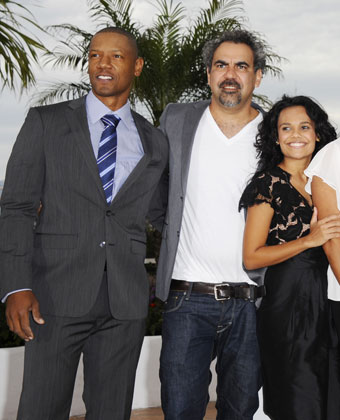
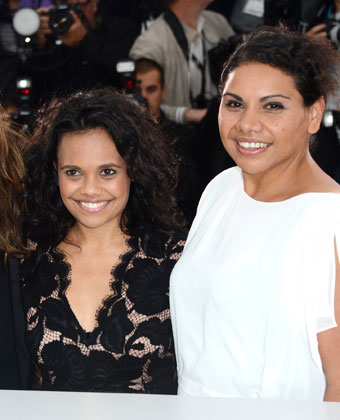

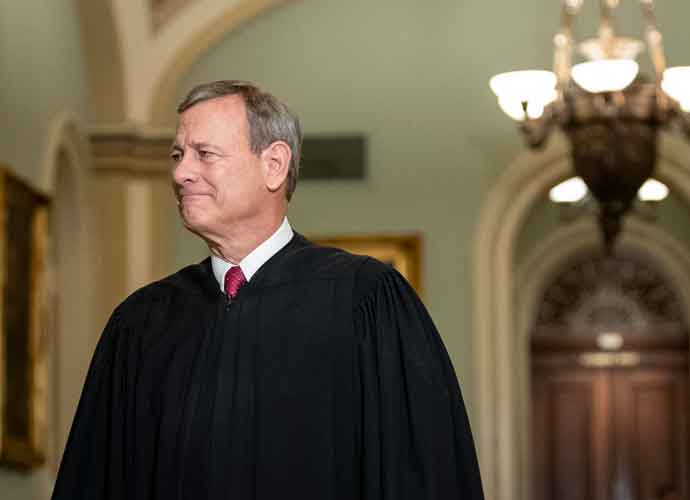


Leave a comment